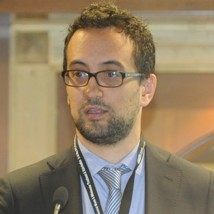Challenges for a Sustainable Water Use and Re-Use
A special issue of Sustainability (ISSN 2071-1050).
Deadline for manuscript submissions: closed (10 December 2017) | Viewed by 30473
Special Issue Editors
Interests: integrated water service; water resources management; water policy; sustainability; corporate governance
Special Issues, Collections and Topics in MDPI journals
Interests: corporate governance; utilities management and policy; water management; waste management; performance measurement
Special Issues, Collections and Topics in MDPI journals
Interests: water utilities benchmarking; efficiency; productivity; economic regulation; contracting; private sector participation; sustainability; water governance
Interests: wastewater treatment; resource recovery from water cycle; emerging contaminants; water reuse; anaerobic digestion; membrane technologies
Special Issue Information
Dear Colleagues,
This Special Issue will be comprised of selected papers from the proceedings of the conference WATER CHALLENGES IN XXI CENTURY, and the IWA conference that will be held in Livorno, 11–13 September 2017. The Special Issue aims to gather the experiences from several countries referring to sustainable water use, including the adoption of household devices for water savings, the levels of water tariff for disincentive water use, rationing, and new water sources, including desalinization and reuse of treated wastewater for agricultural and industrial purposes. The Special Issue also aims to select several contributions on water consumption accountability and disclosure practices on water use and reuse followed by institutions, public administrations, and firms.
Papers selected for this Special Issue will be subject to a rigorous peer review procedure with the aim of a wide dissemination of research results, developments and applications.
Prof. Dr. Andrea Guerrini
Prof. Dr. Giulia Romano
Prof. Dr. Rui Cunha Marques
Prof. Dr. Francesco Fatone
Guest Editors
Manuscript Submission Information
Manuscripts should be submitted online at www.mdpi.com by registering and logging in to this website. Once you are registered, click here to go to the submission form. Manuscripts can be submitted until the deadline. All submissions that pass pre-check are peer-reviewed. Accepted papers will be published continuously in the journal (as soon as accepted) and will be listed together on the special issue website. Research articles, review articles as well as short communications are invited. For planned papers, a title and short abstract (about 100 words) can be sent to the Editorial Office for announcement on this website.
Submitted manuscripts should not have been published previously, nor be under consideration for publication elsewhere (except conference proceedings papers). All manuscripts are thoroughly refereed through a single-blind peer-review process. A guide for authors and other relevant information for submission of manuscripts is available on the Instructions for Authors page. Sustainability is an international peer-reviewed open access semimonthly journal published by MDPI.
Please visit the Instructions for Authors page before submitting a manuscript. The Article Processing Charge (APC) for publication in this open access journal is 2400 CHF (Swiss Francs). Submitted papers should be well formatted and use good English. Authors may use MDPI's English editing service prior to publication or during author revisions.
Keywords
- Water use
- water savings
- reuse
- fertigation
- water footprint
- accountability
- reporting







